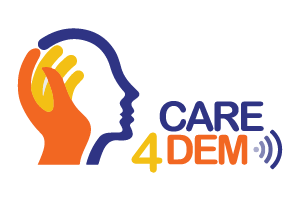

Contact:
Licia Boccaletti progetti@anzianienonsolo.it
ANS is an NGO located in Carpi (Northern Italy) and funded in 2004 with the goal to promote interventions in the field of social innovation, with a specific focus on management of projects and realization of services and products in the field of welfare and social inclusion.
The activities carried out by Anziani e Non Solo concern different social domains, such as training and support to family carers (informal and formal/ adult and young carers), support to social and professional inclusion of migrants and asylum seekers, active ageing, intergenerational activities and support to frail and dependent elderly, support and empowerment of disadvantaged young persons (skills development, social inclusion and school to work transition), prevention of elder abuse and discrimination.
ANS competences include social project management, social research, pilot projects in the social field, training and e-learning.
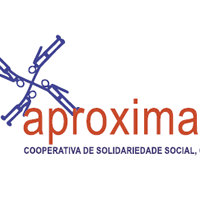
Aproximar is a non-profit organization aiming to enhance organisations’ social and human capital as a strategy to build their capacity and take advantage of challenges and opportunities raised by the external conditions as a mean to build their sustainability. In fulfilling its mission, Aproximar organises and manages tailor-made and social innovation projects and good practices transference and dissemination to enhance organisational, personal, social and professional efficacy and efficiency. Aproximar covers different fields of expertise; develops, organizes & manages different consultancy and training programmes involving areas like mentoring, coaching, fundraising, quality management, social support, volunteering, social innovation processes (new product development, tailored made programmes and transferring of good practices). The programmes always combine social science (knowledge), active methods (people) and suitable tools (technology).
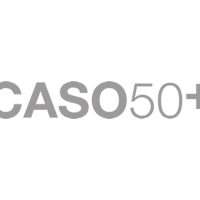
Contact:
cas050mais@gmail.com
CASO50+ is a non-profit organisation established in November 2012. Its aims are to promote health and well-being, active ageing and the quality of life of older adults. The main objectives of CASO50+ are: a) to contribute to the production and dissemination of knowledge in the field of gerontology, b) to implement training and awareness activities in health promotion and well-being, healthy lifestyle and active ageing, aimed at adults/ elderly as well as formal and informal carers, c) to promote initiatives aiming at the early detection of changes associated with the ageing process, in order to minimize their impact on the quality of life of adults and elderly people, d) to support the organisations in the use of tools of management and improvement of the quality of services in response to the needs of the elderly and the community in general (including social services providers, municipalities…) , e) to establish privileged contacts and partnerships with organisations in various areas to implement and support scientific, cultural, social and health activities such as congresses and conferences.
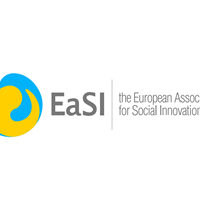
Contact:
Tiago Leitão – tiago.leitao@easi-socialinnovation.org
European Association for Social Innovation is based in Bucharest, Romania and is representing more than 30 organizations from 15 European countries. EaSI aims the advancement of Social Innovation in Europe through the development of research and pilot projects, identification and dissemination of best practices, awarding grants and scholarships regarding the social Innovation practices, processes and systems developed in urban and rural areas, public services, third sector and private sector.
EaSI development domains include: social entrepreneurship, organisational and social design, technology and digital social innovation, public policy and public governance, rural development, community development, social dialogue and social movements, risk management and sustainability.

Contact:
Claire Champeix cc@eurocarers.org
Eurocarers is the European network representing informal carers and their organisations, irrespective of the particular age or health need of the person they are caring for. Our aim is to advance the issue of informal care at national and EU levels by:
- Raising awareness of the significant contribution made by carers to health and social care systems and the economy as a whole, and of the need to safeguard this contribution;
- Ensuring that EU and national policies take account of carers, i.e. promote social inclusion of carers, the development of support services for carers, enable them to remain active in paid employment and maintain a social life.
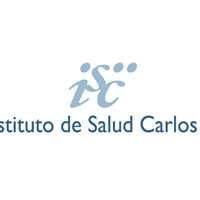
Contact:
Mayte Moreno mmoreno@isciii.es
ISCIII is a public research organization and the national reference centre on scientific research and technological development for health in Spain. The staff of around 1,700 workers cover all aspects of health, from basic research, to policy formulation and education and training. The Nursing and Healthcare Research Unit (Investén-ISCIII) is the main Unit for Nursing Research at national level. The main objective of its strategy is to incorporate nursing research into daily clinical practice, and to promote the development, promotion and support of the evidence based approach to health care. The unit also provides advice on research methodology to all interested researchers and institutions. ICT for Health is implemented through the Telemedicine and eHealth Unit which has a staff of 15 researchers. The main research lines are: mobile health; Ambient Assisted Living (AAL); information systems in healthcare; standardization and semantic interoperability in EHR; personal health record (PHR) and Archetypes; development of open platform for the follow up of patients (chronically, elderly, disability and caregivers); security and safety of telemedicine applications and evaluation of new mobile telehealth services and their integration in the public healthcare system; and extraction of medical knowledge from data (machine learning and big data).
Last Updated on January 29, 2019
